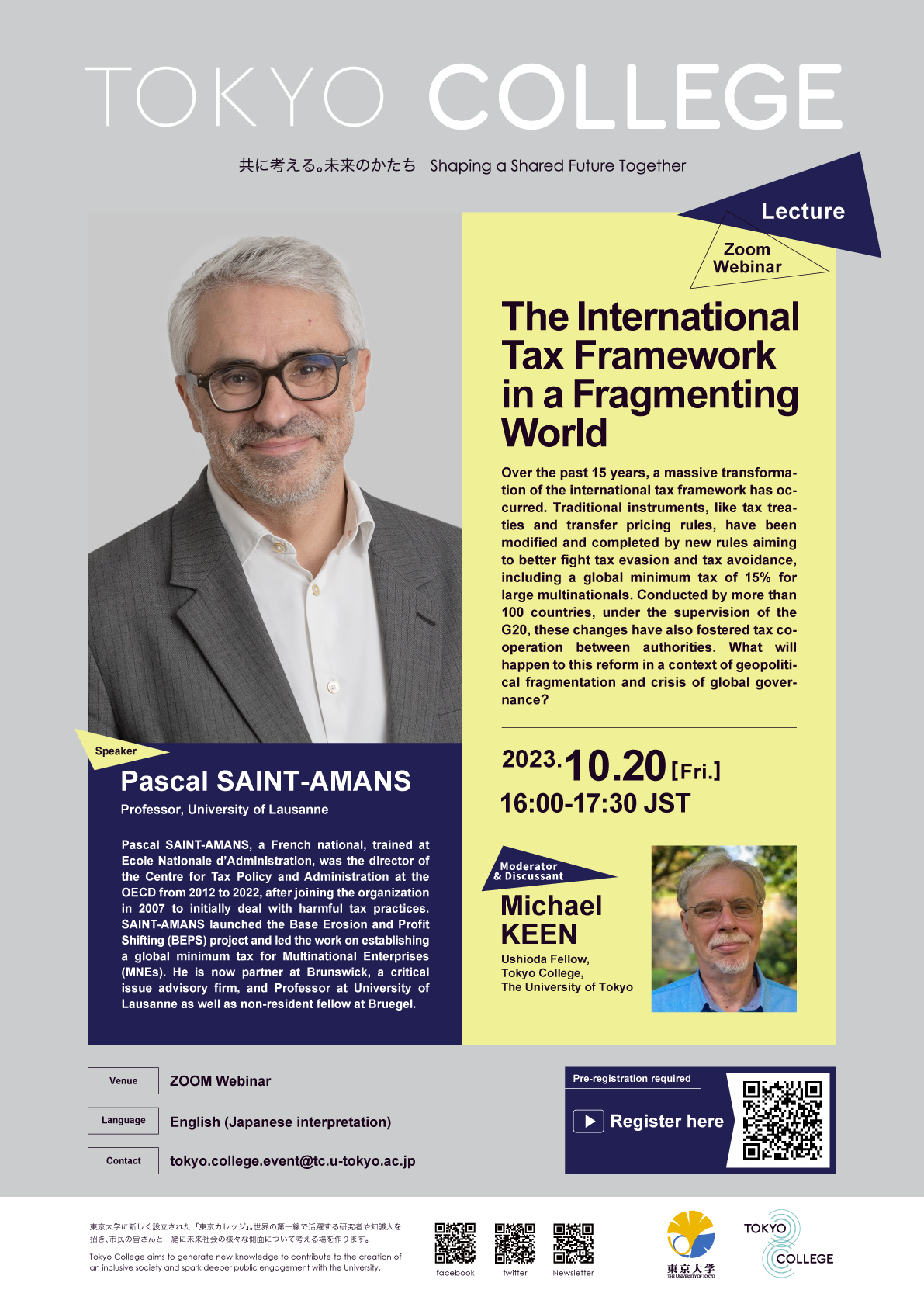The International Tax Framework in a Fragmenting World (Lecture by Prof. Pascal SAINT-AMANS)

| Date(s) | Friday, 20 October 2023, 16:00-17:30 JST |
|---|---|
| Venue |
Zoom Webinar (Register here) |
| Registration | Pre-registration required |
| Language | English (Japanese interpretation) |
| Abstract |
Over the past 15 years, a massive transformation of the international tax framework has occurred. Traditional instruments, like tax treaties and transfer pricing rules, have been modified and completed by new rules aiming to better fight tax evasion and tax avoidance, including a global minimum tax of 15% for large multinationals. Conducted by more than 100 countries, under the supervision of the G20, these changes have also fostered tax cooperation between authorities. What will happen to this reform in a context of geopolitical fragmentation and crisis of global governance? |
| Speaker Profile |
Lecturer: Pascal SAINT-AMANS (Professor, University of Lausanne) Pascal Saint-Amans, a French national, trained at Ecole Nationale d’Administration, was the director of the Centre for Tax Policy and Administration at the OECD from 2012 to 2022, after joining the organization in 2007 to initially deal with harmful tax practices. Saint-Amans launched the Base Erosion and Profit Shifting (BEPS) project and led the work on establishing a global minimum tax for Multinational Enterprises (MNEs). He is now partner at Brunswick, a critical issue advisory firm, and Professor at the University of Lausanne as well as non-resident fellow at Bruegel.
Moderator and Discussant: Michael KEEN (Ushioda Fellow, Tokyo College, The University of Tokyo) |
| Organized by | Tokyo College, The University of Tokyo |
| Contact | tokyo.college.event@tc.u-tokyo.ac.jp |
















